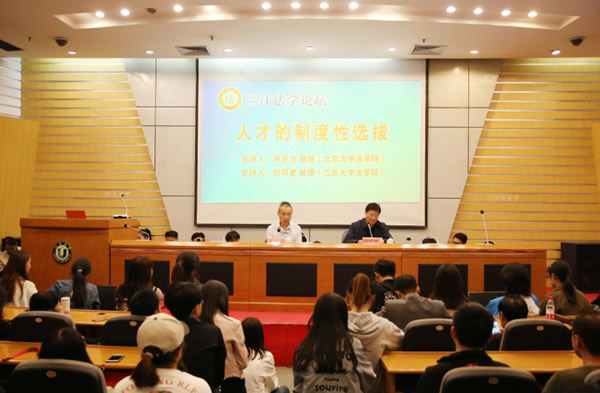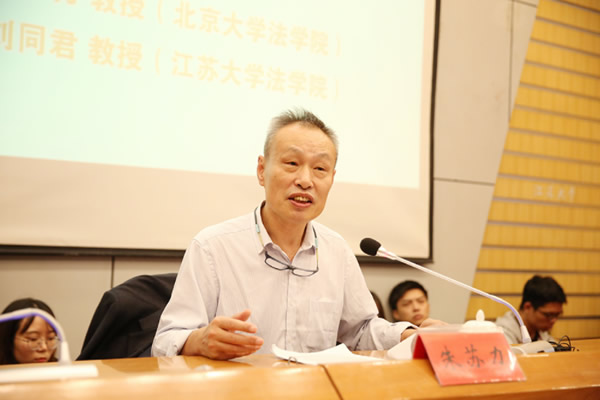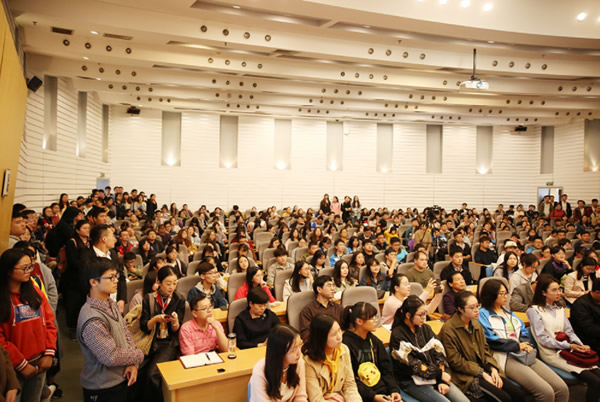Professor Zhu Suli, who is one of The Yangtze River Scholars, has been working at Peking University’s law school. On October 25th, Professor Zhu was invited to give an academic lecture entitled “The Institutional Selection of Talents” to teachers and students in Jiangsu University. The lecture was presided over by Professor Liu Tongjun, who is the dean of the law school. The audience of this lecture consists of teachers, students, judges and lawyers in Zhenjiang.
Professor Zhu stressed the importance of elite selection for the governance of political communities in our countries. The system of selecting political elites has witnessed a long struggle. It originated from the establishment of the national system of ruling a country like a family in the Western Zhou Dynasty (11th century B.C.-771 B.C.). Then it was developed by the imperial examination system. The selection of political elites in China has formed a basic social consensus and created a universal system which was beneficial to break the aristocracy. At the same time, Professor Zhu put emphasis on the differences between political elites and intellectual elites in the field of social governance ability. He proposed that, in a large country which is undergoing the imbalance of political, economic and cultural education development, the selection of political elites is facing many difficulties.
As a well-known scholar in the field of China’s social science and law, Professor Zhu Suli is the distinguished professor of The Yangtze River Scholars, the Tianyuan lecturer and doctoral supervisor of Peking University’s law school. His research fields mainly include law theory, legal economics, and legal sociology.
Zhu Suli’s masterpieces include Rule of Law and Its Local Resources, How Did the System Come into Being, etc. He has also translated many works like Questions of Jurisprudence, Beyond the Law, Questions of Morality and Legal Theory, Economics of Justice, etc.



